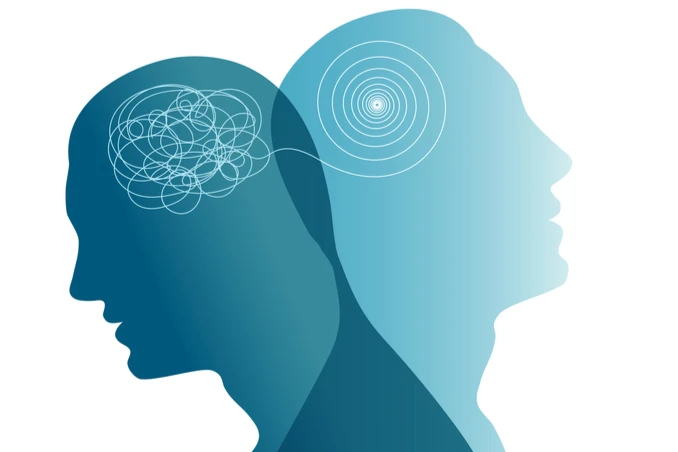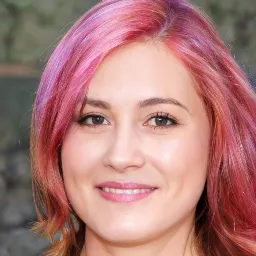The Nature of Co-Occurring Disorders
Table of Contents
For people who are dealing with the devastating impacts of substance abuse, undergoing some form of intensive drug treatment provides them the best opportunity to address their addiction issues head-on. While in treatment, those who struggle with drug and alcohol addiction will undergo an individualized plan of treatment which includes a combination of medical detoxification, therapy, life skills training, and relapse prevention education. These are especially important for dual diagnosis treatment to be effective.
Through this individualized plan of recovery, addicts can work through their substance abuse issues and will receive the tools and support they need to maintain long-term recovery. For most substance abuse is only part of the problem, many suffer from mental health issues such as depression, anxiety, PTSD, or others that contribute to substance abuse. Dual diagnosis treatment focuses not only the substance abuse but also on the mental health of each person.
Helping the addict to physically stop using drugs and alcohol only constitutes a small part of their long-term sobriety. Addiction professionals have long known that drug use is actually a symptom of a deeper mental issue. If those underlying issues aren’t adequately addressed the addict will continue to struggle with their substance abuse–and their problems will only intensify over time. For those who may suffer from co-occurring mental issues in addition to their drug addiction, they must find a drug treatment that features a dual-diagnosis emphasis.
If you would like to know more about the importance of dual-diagnosis drug treatment or are looking for a reputable drug treatment center that features an effective dual-diagnosis treatment that is proven to work, please call Find Addiction Rehabs today and speak to one of our recovery representatives.
24 Hour Dual Diagnosis Treatment Hotline – Get Help Now
(877) 633-0053
What is Dual Diagnosis Treatment for Addiction?
Often referred to as co-occurring disorders, dual diagnosis is a term used to describe people with mental illness who have coexisting issues with alcohol or other illicit substances. Drug addiction and mental illness have a complex relationship that involves many social, environmental, and biological factors. In a drug and alcohol rehabilitation environment, the treatment of those with co-occurring substance abuse and mental illness is more complicated than the treatment of either condition alone. This is, unfortunately, a common situation due to the fact that it is often difficult for addiction professionals to ascertain whether the addict’s substance abuse or mental illness occurred first.
There are many who may not be familiar with the concept of dual diagnosis treatment, and that is due to the fact that the concept is relatively new. Prior to the 1990s, people who were experiencing symptoms of a mental health disorder were often treated separately from those who sought help for drug or alcohol abuse. If those conditions overlapped, addicts were often denied treatment for a mental illness until they got clean and sober. Unfortunately, because substance abuse is often driven by an underlying psychiatric disorder, this meant that many people with a dual diagnosis of addiction and a mental disorder never got the help they needed.
Those who have long-standing struggles with a mental illness will often use drugs and alcohol as a means of self-medication. While people that have been diagnosed with a specific mental disorder may abuse substances, it is more common for people who have an undiagnosed mental illness to abuse substances. For these people, drugs and alcohol are a convenient way to minimize and internal anguish and suffering they experience. No matter the concerns, once beginning to get sober, recovery symbols can be important ways to support and celebrate this achievement.
While drugs and alcohol can provide those with mental illnesses a short reprieve from the stress, anxiety, and turmoil they feel, the use of substances over time will make an individual’s mental illness much worse. Without the professional help of a drug treatment program with a dual diagnosis emphasis, the deeper roots that cause people to turn to substances in the first place will never be addressed. Additionally, those who abuse drugs and alcohol can cause people to experience the onset of symptoms associated with mental illness–even if they don’t have a history.
What are the Most Common Mental Health Issues Found in People Struggling with Substance Abuse?

There are a variety of mental health issues that can co-exist with a substance abuse disorder. In general, the following mental illnesses are found to co-occur with drug and alcohol addiction:
- Anxiety disorders
- Moderate to severe depression
- Personality disorders
- Mood disorders
- Schizophrenia
In a dual diagnosis situation, there are certain mental health conditions that are intertwined with a specific drug. For example, those who struggle with marijuana addiction often have schizophrenia as a co-occurring disorder. Those who are addicted to cocaine may also suffer from a variety of anxiety disorders. Additionally, those who are addicted to heroin are often diagnosed with depression.
The Importance of Dual Diagnosis Addiction Treatment
For those who have co-occurring mental health and substance abuse issues, there are special issues that need to be addressed when they enter treatment. Many who have a dual diagnosis often feel great guilt or shame and may be in deep denial in regards to their condition. As a result, they may be very resistant to treatment and even if they do enter treatment they may lack the motivation needed to address their issues. In a dual-diagnosis treatment setting, addiction, and mental health professionals collaborate with the addict’s family in creating a treatment plan that adequately addresses both issues while providing an environment that is safe, non-judgmental, and empowering.
Dual-diagnosis treatment programs place emphasis on certain therapies and treatment techniques that best target the addict’s underlying issues. For example, cognitive-behavioral therapy (CBT) will help those struggling with mental health and substance abuse issues unlearn the behaviors and attitudes that have kept them stuck in their addiction and gives them the tools to create healthier coping mechanisms and mindsets. Choosing the right level of care for dual diagnosis addiction treatment can also be crucial, as the appropriate entry point to the continuum of services can be much different depending on substance usage and mental health circumstances.
Additionally, holistic-based therapies such as mindful meditation, hypnosis, and yoga can help calm the brain and body’s “fight or flight” response. These techniques can help lower blood pressure, reduce altered breathing and decrease the heart rate.
24 Hour Addiction Treatment Hotline – Get Help Now
(877) 633-0053
Freedom From Addiction: Found Here!
If you have found yourself or a loved one suffering from alcoholism or addiction, you are not alone! If you are ready to change your life and live free of addiction, then Find Addiction Rehabs can help. We give you the jump start to recovery you need. Our nationwide programs are unique in that the facilities we refer to don’t just treat the addiction, each one treats the whole person. For more information on our facilities across the United States, call us now.
Anna M. joined Find Addiction Rehabs with extensive experience in the field of addiction treatment. As a former Nurse Practitioner in Miami, she found her passion for addiction treatment when a family member was lost to his disease. With each article and resource, she hopes to save other families from experiencing the anguish of a loved one’s passing due to drinking or drugs.


